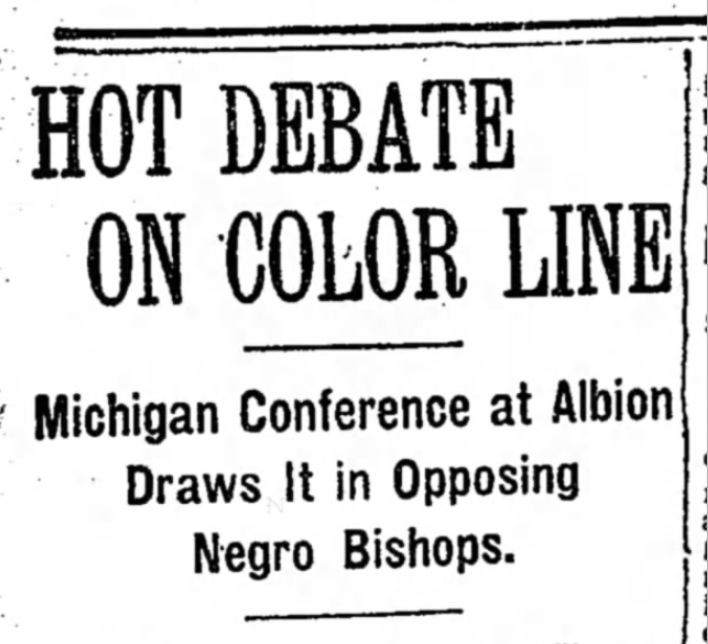On this daySep 13, 1907
White Methodists Exclude Black Clergy in Michigan
Detroit Public Library, Burton Historical
On September 13, 1907, the Michigan Annual Conference of the Methodist Episcopal Church voted against ordaining Black bishops. The vote denied Black clergy leadership positions even within predominantly Black congregations. Delegates expressed concern that Black bishops may eventually lead white congregations and claimed that the moral inferiority of Black people required Black preachers to submit to white spiritual leadership.
Early Methodists actually supported the abolition of slavery and preached a theology of egalitarianism that resonated with free and enslaved Black people. By the late 1700s, Black Methodists comprised 24% of the church.
But white Methodist support for abolition did not last. As Methodism spread across the South, enslavers resented Methodist teachings on human dignity and feared the opportunities that the church created for Black self-determination. They sought assurances from the church against disruption of the existing racial caste system.
The Methodist church complied, adopting policies against the ordination of Black clergy. The church further embraced an interpretation of the Bible that defended white supremacy and justified enslavement as God-ordained. In 1845, Southern Methodists separated and formed a new denomination—known as the Methodist Episcopal Church, South—to preserve their ability to enslave fellow human beings. However, even after the split, Northern congregations continued to enforce policies that subordinated Black people and worked to entrench segregation both inside and outside the church into the 20th Century.
White Protestant congregations often played critical roles in defending slavery and institutionalizing Jim Crow segregation. Learn more about slavery in America here and the country’s history of segregation here.
About EJI
The Equal Justice Initiative works to end mass incarceration, excessive punishment, and racial inequality.
About this website
Until we confront our history of racial injustice and its legacy, we cannot overcome the racial bias that exists today.
 Learn more
Learn more